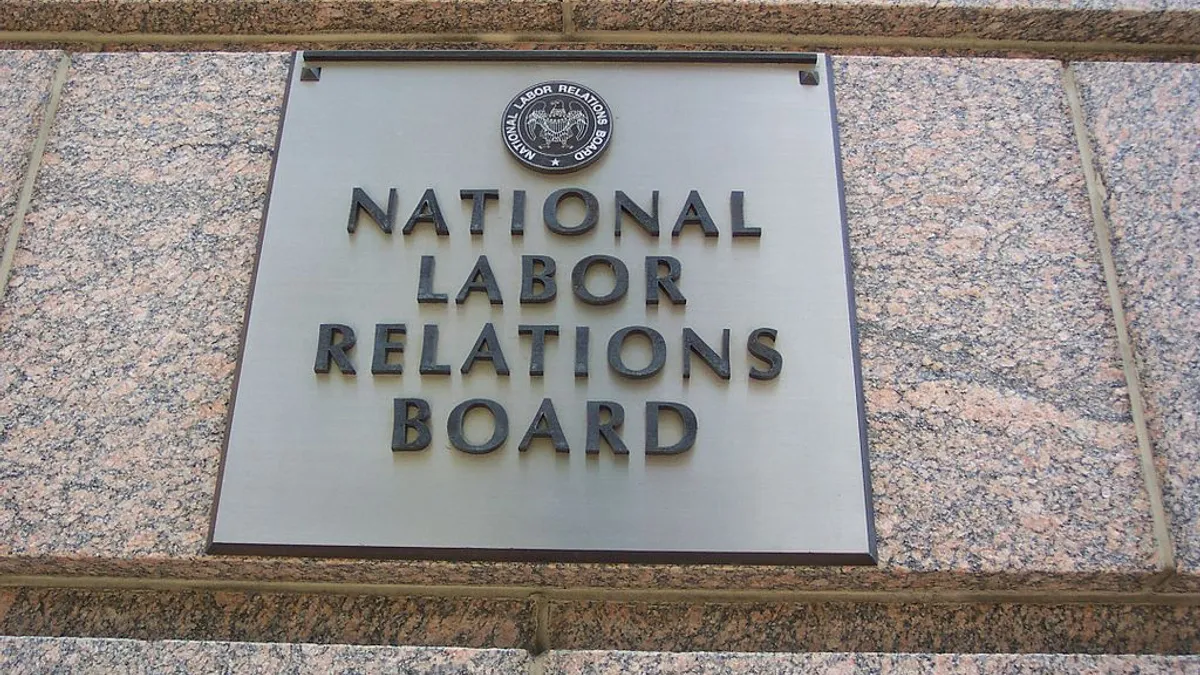Dive Brief:
- The National Labor Relations Board (NLRB) will soon propose regulations establishing standards under the National Labor Relations Act (NLRA) for worker and union access to an employer's private property, it announced Wednesday.
- In its spring regulatory agenda, NLRB said it expects to release a Notice of Proposed Rulemaking in September. A public notice and comment period would likely follow before any rules are finalized.
- In separate agenda items, the Board also said it plans to: (1) establish a standard for determining whether students who perform services at a private college or university in connection with their studies are "employees" entitled to the NLRA's protections; and (2) revise its representation election regulations, with a focus on election bar policies.
Dive Insight:
The board's chair, John Ring, teased a property rule late last year at the American Bar Association's 12th Annual Labor and Employment Law Conference. Calling for more regulation from NLRB in general, Ring said he believes the Board would do well to "take old chapters of the developing labor law and codify them," specifically for complicated issues. "One area that comes to mind [is] access to employer property," he said. "It's an area where there are a lot of different components to the rules."
Several recent enforcement actions involving the issue have focused on outdoor areas. NLRB determined last year, for example, that a Michigan Burger King franchisee violated the NLRA when it used its anti-loitering and anti-soliciting policies to discipline employees discussing a strike in its parking lot. It also initially held that an employer violated the law when it asked police to remove union organizers from an area of a public road that it mistakenly believed it controlled; the 3rd U.S. Circuit Court of Appeals, however, reversed that ruling, finding that the company acted out of a reasonable concern for its property rights.
Generally, employers can prohibit solicitation in certain areas, like a retail store's selling floor. But the standards aren't completely clear: in the Burger King case, for example, the employer argued its parking lot was a selling area because of its drive-through window. NLRB, however, disagreed.













